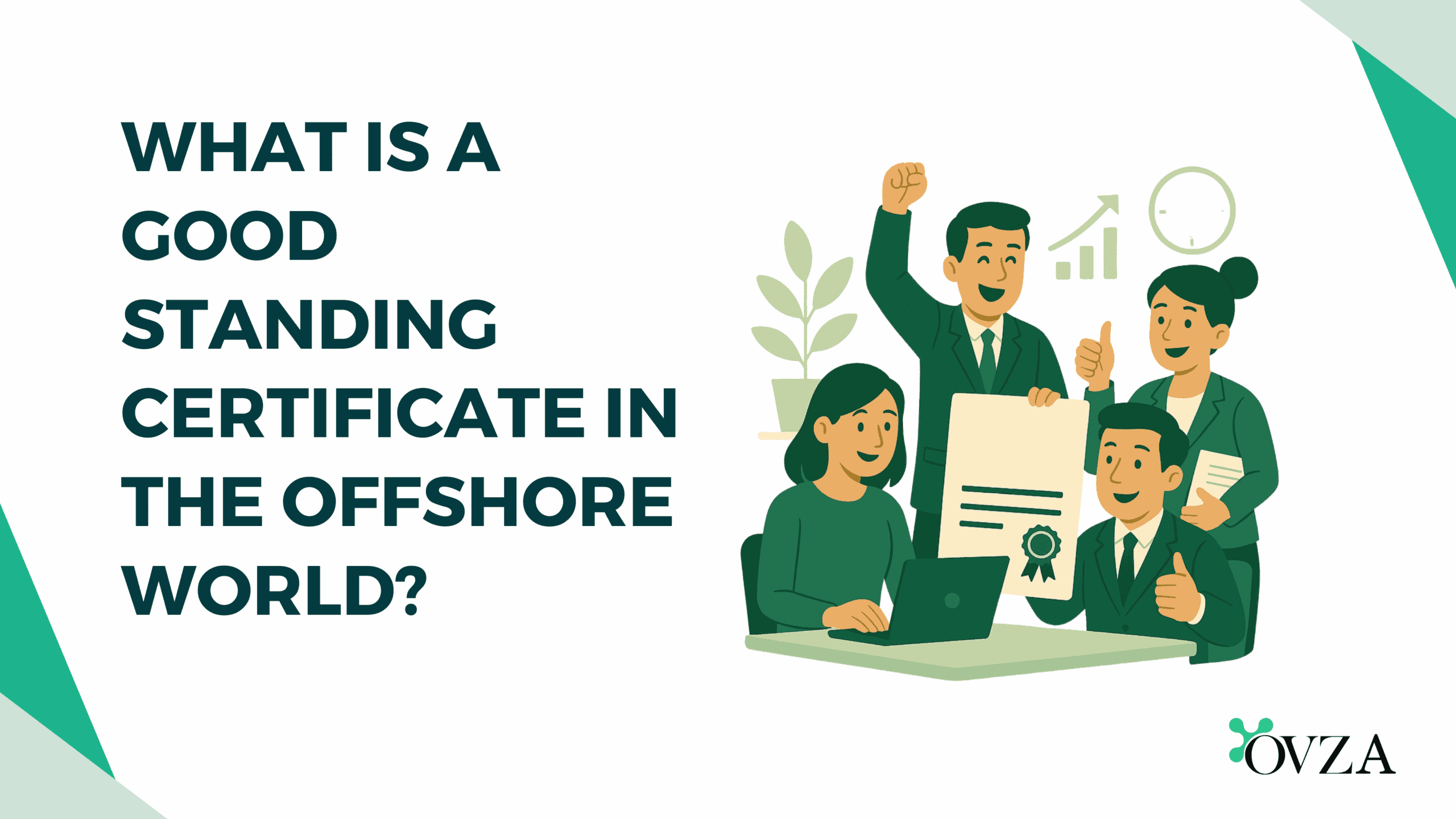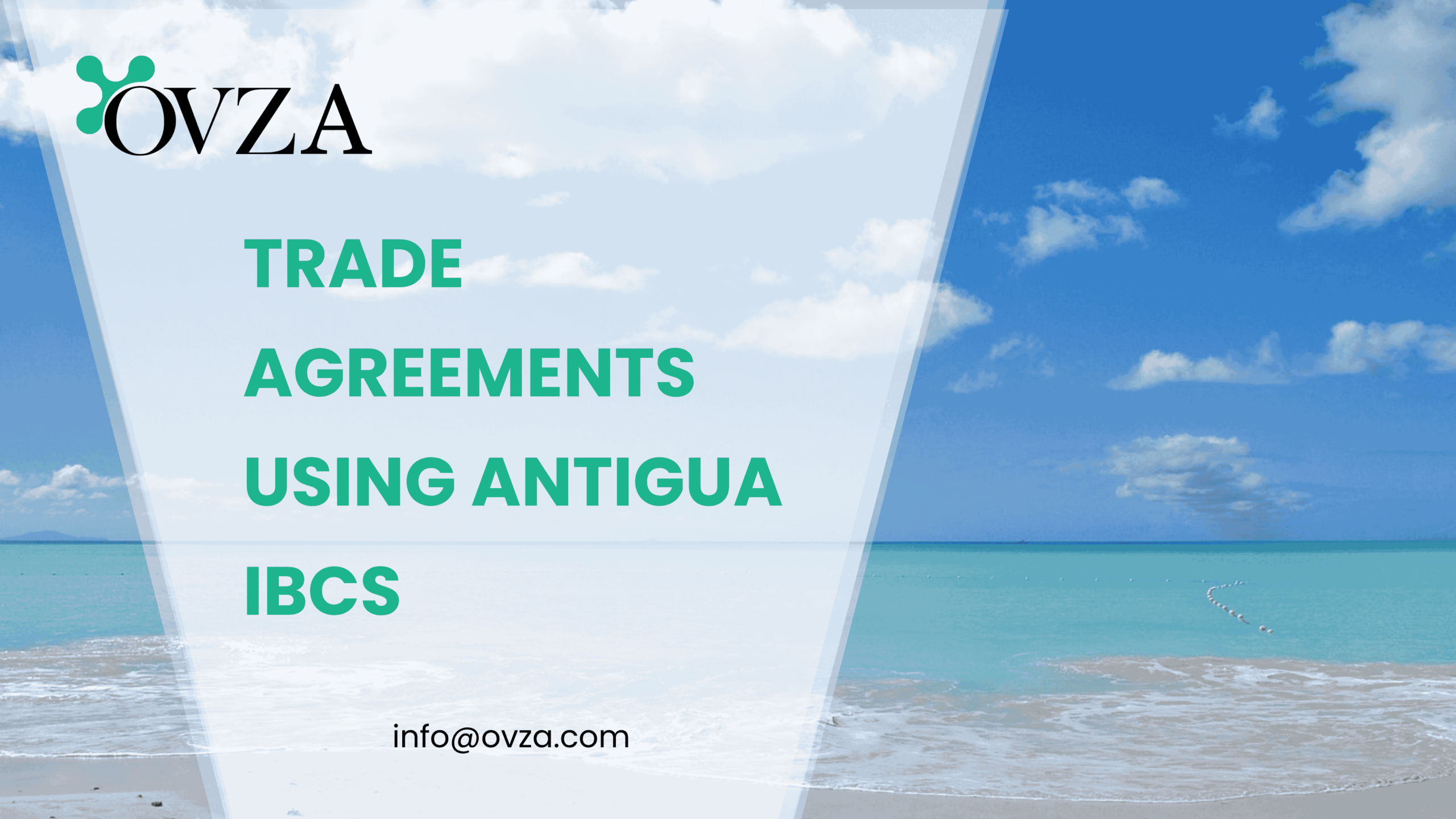What is a Good Standing Certificate in the Offshore World? is one of the most frequently requested documents for international companies. It serves as official proof that an offshore entity is active, compliant with local regulations, and in full legal existence. Issued directly by the Registrar of Companies in the jurisdiction of incorporation, the certificate confirms that the company has met its obligations, such as annual renewals and statutory filings, and has not been dissolved, struck off, or placed into liquidation.
In the offshore world, this certificate is more than just a formality. Banks, regulators, and international counterparties rely on it as a compliance safeguard. Without a Certificate of Good Standing, an offshore company may encounter significant obstacles when opening a bank account, registering a subsidiary abroad, or engaging in cross-border transactions.
Definition and Legal Basis
A Certificate of Good Standing in offshore jurisdictions is an official statement from the Registrar affirming that the company legally exists and is in compliance with its duties. It does not disclose the names of directors or shareholders—that role belongs to other corporate records, but instead focuses on the entity’s current legal position.
The legal basis for this certificate is rooted in the corporate legislation of each jurisdiction. For example, under the BVI Business Companies Act, the Registrar may issue a Certificate of Good Standing if the company is duly incorporated, has paid all annual fees, and is not in default of statutory filings. Similar provisions exist in the Cayman Islands, Seychelles, Belize, and other offshore centers, each giving the certificate the same essential function: to confirm that the company remains in good standing with the registry.
The certificate typically bears the Registrar’s seal and is issued with a recent date, often making it valid for only six to twelve months. Many banks and institutions require an updated version every time a significant transaction takes place, reflecting the importance of this document as an ongoing compliance tool rather than a one-time formality.
Why Offshore Companies Need a Certificate of Good Standing
Think of a Certificate of Good Standing offshore as your company’s “clean bill of health.” It’s the registrar’s way of saying: yes, this company exists, it’s paid its renewal fees, and it’s allowed to keep doing business. That might sound like a small thing, but in practice, it’s one of the most powerful documents you’ll ever be asked for.
- When Opening a Bank Account
Almost every offshore bank will ask for this certificate. Without it, the account opening process usually stops dead in its tracks. Banks want to know they are dealing with a company that hasn’t been struck off or abandoned. A recent Certificate of Good Standing — usually not older than 6 months — is their reassurance that your company is alive and well. - When Expanding Abroad
If you want to register a branch or set up a subsidiary in another country, local authorities will insist on this certificate. It proves that your offshore entity isn’t a shell that disappeared years ago. Without it, the registration process can drag on or even fail completely. - When Signing Contracts or Deals
Counterparties — especially serious investors or business partners, often request a Certificate of Good Standing before committing to a deal. In the offshore world, where information is less public, it’s one of the few ways they can verify your company is legitimate and compliant. - When Dealing with Courts or Regulators
If your offshore company ever needs to appear in court or engage with a foreign regulator, a Certificate of Good Standing is usually mandatory. Courts won’t waste time on a company that legally doesn’t exist. This certificate shows your entity is entitled to act.
In short, it’s not just another piece of paper. A Certificate of Good Standing is your offshore company’s proof of life, and without it, banking, legal, and investment doors will stay firmly shut.
Certificate of Good Standing vs. Certificate of Incumbency
Although often requested together, a Certificate of Good Standing and a Certificate of Incumbency serve different legal purposes in the offshore world.
The Certificate of Good Standing is issued by the Registrar of Companies and confirms that the entity is duly incorporated, has satisfied all statutory obligations, and remains active on the register. Its scope is limited to the legal status of the company itself.
The Certificate of Incumbency, by contrast, is typically prepared by the registered agent and provides a current record of the company’s officers, directors, and shareholders. It identifies the individuals who are legally empowered to represent the company and execute transactions on its behalf.
In practice, financial institutions, regulators, and counterparties require both documents simultaneously. The Certificate of Good Standing assures them that the company continues to exist and has not been struck off, while the Certificate of Incumbency clarifies who is authorized to act for the entity. Together, they provide a comprehensive picture of the company’s legal and operational standing, which is indispensable in cross-border banking and compliance procedures.
“In the offshore world, registries are often closed to the public. A Certificate of Good Standing becomes, therefore, not a convenience but a necessity. It is the single document by which banks and counterparties may know that a company still breathes in law and continues its rightful existence.” — Eli Carter, Legal Affairs
Conclusion
A Certificate of Good Standing offshore is, in practice, the lifeline of an international company. It tells banks, regulators, and business partners that the entity is alive, compliant, and legally recognized.
Without it, account openings stall, contracts face delays, and opportunities can quietly disappear. Because offshore registries are not open to public view, this certificate is often the only authoritative way to confirm a company’s continued existence. For any business owner working across borders, it is not just a piece of paper, it is one of the few documents in the international community that are recognised universally.
Disclaimer: The information provided on this website is intended for general reference and educational purposes only. While OVZA makes every effort to ensure accuracy and timeliness, the content should not be considered legal, financial, or tax advice.










